
Ever Find Yourself Nodding Off… Again?
Let’s be real—most of us have had that moment where our head droops and then snaps back up. Maybe you’re at your desk fiddling with your pen, or in the middle of a sitcom binge on the couch, and suddenly you realize, wow, you just nodded off. “Oops, hope nobody saw that!” you laugh it off… but then it keeps happening. Sound familiar?
I used to shrug off those spells of sudden sleepiness. Thought I was just working too hard, or that my latest workout left me extra tired. But then a close buddy of mine started blanking out in meetings and even at dinner. At first, we joked about it—called him “Sleepy Steve.” Turns out, there’s way more to these “nodding off causes” than too many late-night group chats or a boring PowerPoint. Sometimes, nodding off is your body’s way of waving a red flag.
Is It Just a Bad Night’s Sleep?
Here’s the thing: not all tiredness is created equal. Maybe you’re burning the candle at both ends, answering emails at midnight or playing video games until your eyeballs ache. Lack of sleep? Sure, that’ll do it. But persistent head-dropping—when you literally can’t fight it—can be more than run-of-the-mill fatigue (common research on sleep disorders).
Have you ever noticed you can sleep a full night but still crash on the train or in the waiting room? That’s a clue. It’s the difference between being tired and almost uncontrollably drowsy. This goes beyond yawning your way through Monday; it’s like your brain keeps pressing the snooze button without your permission.
Sleep Thieves You Didn’t See Coming
Let’s take a peek at some sneaky sleep disruptors:
- Late-night scrolling (yes, TikTok, I’m looking at you)
- Binge-watching until your “Are you still watching?” pops up
- Caffeine “just to get through the afternoon” turning into a vicious cycle
- Shift work—or jumping between early mornings and late nights
It adds up fast. You think you’re fine… until your head starts bobbing in broad daylight. And don’t get me started on how quickly this routine gets out of control. Those with unpredictable sleep often find themselves asking, Why do I keep falling asleep when I sit down—and honestly, it’s a great question to start with.
Table: Comparing Ideal Sleep to Real Life
| Ideal Sleep | Your Routine | Nodding Off Risk |
|---|---|---|
| 7–9 hrs/night Consistent bedtime | 5–6 hrs Irregular hours | High |
| Minimal caffeine Screen-free before bed | Afternoon lattes Scrolling in bed | Moderate–High |
| Calm wind-down | Emails before sleep | High |
Could It Be Something Deeper?
Okay, let’s say you’re doing “everything right” but still can’t stop nodding off. This is where things get interesting—and a bit more serious. Sleep disorders and certain health issues can fool you into thinking you’re just “tired,” when it’s actually your body fighting something bigger.
I once coached a guy—let’s call him Dan—who’d fall asleep during movies no matter how action-packed they were. Turns out, Dan had sleep apnea. No, not just snoring—real pauses in his breathing all night, so he never hit that deep, restorative sleep. That “just a bit tired” feeling was a real disorder sapping his energy, even after a so-called full night’s rest (Harvard Sleep Medicine info).
Dozing Off: Is It Sleep Apnea?
How do you know if you have sleep apnea? Clues include super-loud snoring, choking or gasping at night, and that classic “I’m wiped out even after eight hours” vibe. You’re not lazy. There’s legit science behind it! If you find yourself literally unable to keep your eyes open during the day—especially while sitting still—check out resources like Why do I keep falling asleep when I sit down for more firsthand stories and practical advice.
The Narcolepsy and Hypersomnia Plot Twist
Some people experience a sudden, wild attack of sleepiness—like, zap, you’re out cold for a few minutes, then back awake like nothing happened. Welcome to the world of narcolepsy (according to Mayo Clinic). This is more than just being tired; it’s your brain misfiring on wakefulness, making you drop into sleep unpredictably.
There’s also something called hypersomnia—you may sleep for ages and still feel half-awake all day. It’s like running on a low battery, no matter how long you charge.
Red Flag: “Automatic Behavior”
Narcolepsy gets especially tricky because you might find yourself writing, walking, or even driving while briefly asleep… and not even remember doing it (Dr. Scammell’s explanation). Sounds like something out of a sitcom, right? Except for my cousin—he once woke up to find a weird doodle on his notepad after a meeting… he had zero memory of making it! Cute, but kind of scary.
Nodding Off on Drugs: More Than Just Sleepy Eyes
Let’s shift gears for a sec—what if “nodding off” isn’t about tiredness at all?
A lot of people don’t know that certain medications (like those for anxiety or allergies), or using substances like alcohol or opioids, can send your system into ultra-drowsy mode (here’s a breakdown of causes and risks).
This is where things can get risky—especially with opioids (heroin, fentanyl, prescription painkillers) or a cocktail of drugs and alcohol. When the body gets overloaded, it slows everything down: heart, breathing, your reflexes. Nodding off becomes a warning sign that your system is in trouble, maybe even close to overdose (Canadian Centre for Addictions’ warning).
Examples From Real Life: When “Just Tired” Turns Scary
I met someone in a fitness group who nodded off at the gym—mid-set. (Wild, right?) We swapped stories and he admitted he’d started using painkillers for an old sports injury. “Thought it was helping, but I was getting groggy even before my full warm-up was over.” He had no clue it was a side effect, or that it could be so dangerous. If you mix stuff—opioids and alcohol, or benzos with other meds—the risks jump even higher (confirmed in Harvard’s sleep education piece).
Warning Signs and What to Watch For
- Head bobbing or slumping
- Slurred speech, trouble focusing
- Shallow, irregular breathing
- Pinpoint pupils, slow reaction time
These aren’t just embarrassing or inconvenient. They’re literal warning lights. Ignore them, and you could be risking your health, your safety, or even your life.
Long-Term Effects: Not Just in the Moment
Let’s get honest for a sec: regular nodding off—especially if substances are involved—wrecks more than your attention span. There’s cognitive decline, memory fog, and, over the long haul, real organ damage (deep-dive on the dangers).
If you catch yourself thinking, “But I’m only using what my doctor prescribed,” take a breath. Even prescribed meds can pile up fatigue. And if you’re mixing substances (even “just this once”), call it what it is—a risk. If this sounds familiar, or you’re wondering Why am I sleeping too much all of a sudden, it’s probably time for a check-in.
Wait… Could It Be Your Body Shouting for Help?
Sometimes, nodding off has nothing to do with sleep, medication, or even substances. Chronic health issues love to sneak up and sabotage your energy. Things like:
- Obesity (adds pressure on your system)
- Thyroid problems (can tank your energy, fast)
- Uncontrolled blood sugar (diabetes, anyone?)
- Mental health dips—such as depression or anxiety
It’s wild how much your body can absorb before it hits you with these “hey, slow down!” messages. Sudden weight gain, mood crashes, or unexplained sluggishness can all add to the pile. If you’ve ever had a “How did I sleep 10 hours and STILL wake up exhausted?!” morning… you are not alone. If nodding off is messing with daily life, it’s definitely worth talking to a doctor (Why am I sleeping too much all of a sudden has some solid tips for tracking and troubleshooting).
Mental Health Matters Too
Depression has a sneaky way of flattening your energy. Anxiety can leave you tossing and turning at night, making days a blur. Both can push you toward nodding off at all the wrong moments.
Ever felt your eyelids get heavier after a stressful day? Or notice you nod off more when you’re actually bummed out, not “just busy?” Our emotions are entangled with our energy cycles—it’s not “all in your head;” it’s science.
Quick Fixes and Real-Life Self-Checks
| Quick Fixes | When to See a Doc |
|---|---|
| Stick to a regular sleep schedule Limit caffeine, especially late Keep electronics out of bed Move a bit each day | Nodding off disrupts work or life Your sleep doesn’t feel restful You use medication and feel groggy You fall asleep suddenly or at odd times |
Keep a journal for a week. When do you nod off? Are there triggers—like stress, new meds, or skipped meals? Noticing a pattern gives you real power to change it (and a head start if you need to chat with your provider).
So, What Now? Take Back Your Day!
Here’s the real talk, friend: Sometimes, nodding off is your body’s way of trying to protect you—or at least get your attention. But you don’t have to keep guessing.
If you see yourself in any of these stories, use it as motivation. Jot down when you feel drowsy; tweak one habit at a time—maybe no more doom-scrolling before bed, or cut out just one afternoon coffee next week. Tell your workout buddies or family. They’ll help keep you honest, and you won’t feel so alone if things get weird.
And if you’re still stuck, or just want backup? Reach out to someone you trust—your GP, a sleep clinic, maybe even a counselor. There’s zero shame in getting checked for sleep disorders, medication effects, or health issues that might be lurking in the background. The earlier you spot the pattern, the faster you can get back to feeling like you.
Nodding off doesn’t have to be your norm. Take it as a cue, not a curse. You’re in control… at least, once you figure out why your eyelids keep clocking out on you.
So, what step are you thinking of starting with? Better sleep habits? Scheduling a checkup? Cutting down those sneaky snacks or drinks at night? I’d love to know what’s working for you—or what’s not. Drop a note below, and let’s keep each other awake (and well) for the good stuff ahead.
And next time you wonder, “is it just me?”—remember: you’re definitely not alone! Here’s to uncovering the real nodding off causes, and finally feeling wide awake again.

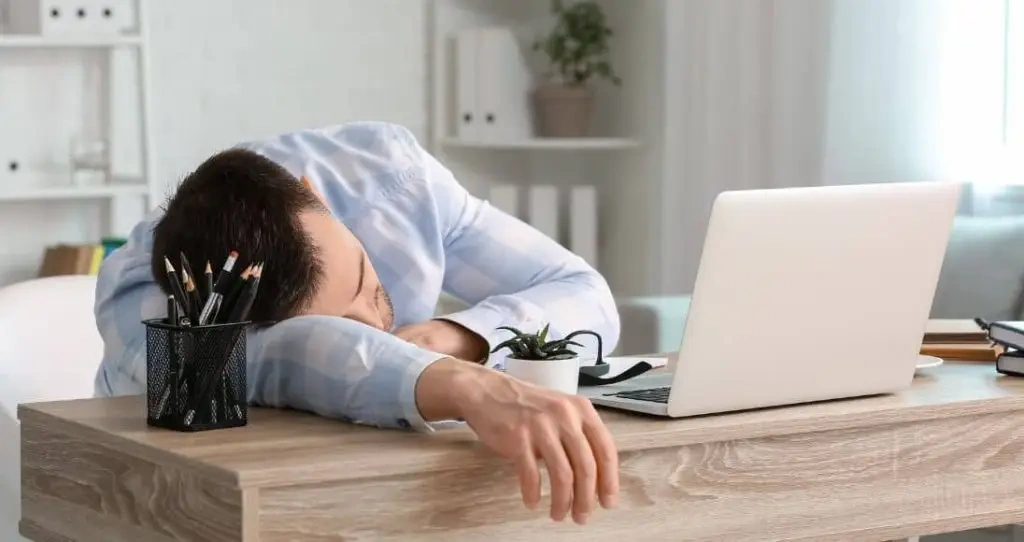
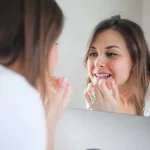

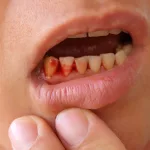

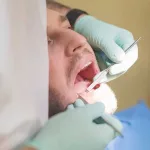


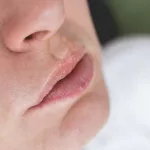


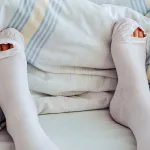





Leave a Reply
You must be logged in to post a comment.